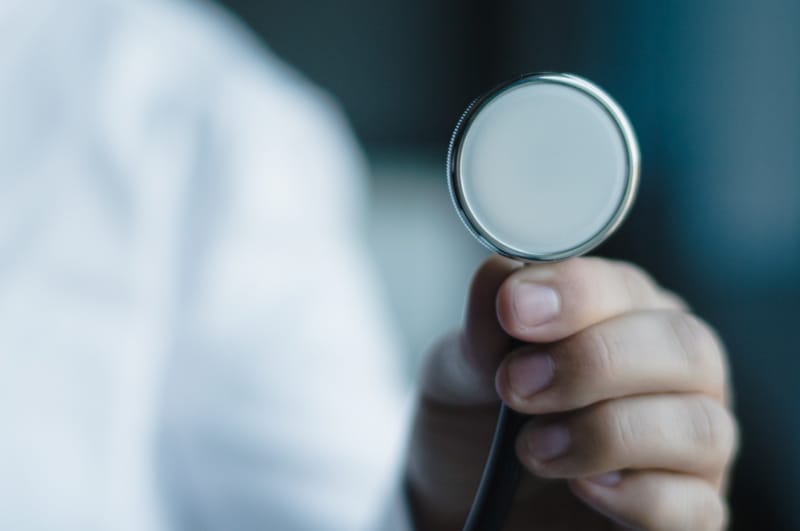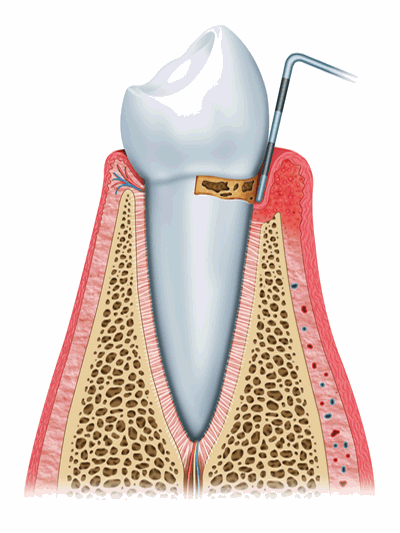Tooth Brushing Techniques
Location
407 Blackpool Road , Ashton
Preston , Lancashire

Get In Touch
Give Your Mouth an Improved Routine; Get a Thorough Cleaning
Call Us
01772 – 726932
Hours
Monday – Friday : 09;00-17;30
Brushing your teeth
The average time that people brush their teeth for is 45 seconds, and to be honest with you this just isn’t enough!
Electric toothbrushing; We recommend electric toothbrushes as the best method. They have a very efficient cleaning action and most models have a two-minute timer that ensures the teeth are brushed for long enough.
The technique is very different from that for manual tooth brushing. Just put the brush in contact with the tooth-gum margin and follow the contour of the tooth round to the next one. Let the brush do the work for you. Brush each tooth individually, not as a ‘row of teeth’
Manual toothbrushing; The technique we recommend is called the Bass mini scrub technique. This involves carefully placing the bristles on the gum margin, pointing 45 degrees up for upper teeth or down for lower teeth, and gently but firmly move the brush backwards and forwards, no more than a centimetre at a time, keeping the bristles in contact with the gum margin.
After a few seconds of this carefully roll the bristles away from the gum edge then start again with your toothbrush centred on the next tooth. Gradually work your way around your mouth. Inside and out top and bottom.
What are the methods of brushing?
There are 2 common techniques of brushing i.e. bass and fone’s methods of brushing. Bass technique is used by adults and fone’s is for the children.
Bass technique is for routine use; in this, the brush is at 45 degrees to the long axis of the teeth. The bristles are used to clean the area between the gums and the teeth as well as between two teeth. After this brushing is done with front and back strokes along with vibratory action. Posterior and anterior strokes are used for the eating surface.
Fone’s technique is very effective for children. In this, the brush is placed at 90 degrees on the outer surface. The teeth are closed and rotary action of the brush helps to clean the teeth. This technique is easy to follow.

Arrange An Examination
How important is brushing your teeth?
Brushing is very important as it keeps our teeth and gums healthy. It helps to clean dirt between the gums and the teeth and also between two teeth. Brushing technique should be soft (to massage the gums) and firm (to remove dirt). Brushing reduces the risk of infection and cavities making both teeth as well as gums strong.
How frequently should we brush the teeth?
What is important is the quality of brushing rather than the number of times. But dentists recommend brushing twice a day, one time in the morning and second time at night before going to bed. Frequency of brushing depends on individual oral condition i.e. formation of plaque, gum diseases, caries risk, etc.
What types of brushes are available in the market?
There are 3 types of brushes. Soft brushes are for those who have sensitive gums. They can clean food particles but if the gap between the teeth is less, cleaning becomes difficult.
Medium brushes are for those who have healthy gums and teeth. Hard brushes are cheap but have a negative effect on the teeth; they lead to tooth abrasion which exposes the root of the teeth making the teeth sensitive to hot/cold.
Chat With An Expert.
Sed ut perspiciatis unde omnis iste natus error sit voluptatem accusantium doloremque laudantium, totam rem aperiam, eaque ipsa quae ab illo inventore veritatis.
Bleeding Gums Treatment
If plaque is allowed to gather for 24 hours or more, the inflammation in your gums becomes chronic. The continuous presence of bacteria makes it impossible for your body’s natural defences to fight the infection.
Chronic inflammation leads to a breakdown of the normal attachment between the teeth and the gums, causing the formation of “pockets.” Inside these pockets the infection continues to attack the tissues that support your teeth.
Bleeding gums can be treated by the removal of the source of bacteria. Proper maintenance of the teeth by the patient is a must. The most important part of the treatment is to help you achieve a good tooth cleaning technique.
This is much more important than any cleaning the dentist or hygienist does. If you are not cleaning off the plaque regularly, the disease process will continue to progress. Your cleaning is the most important part of the treatment!

How Gum Disease Affects Your Overall Health
Our experienced dentists always informed of the latest scientific research available in the field of dentistry. We now know that if you have an unhealthy mouth you are at risk for developing serious systemic illnesses like cardiovascular disease, diabetes, pre-term labor, as well as auto-immune and inflammatory diseases.
If you already have a systemic illness and – on top of that – your mouth is unhealthy, it puts you at a higher risk of dying and developing crippling disabilities associated with your illness. Improving the health of your mouth can reduce your risk for future illness, reduce the negative impact your current illness is having on your body, can reduce the amount of medication you need, and in some cases can actually reverse your illness entirely.
Cosmetic Dentists
Years of Experience
Frequently Asked Questions
What causes bleeding gums?
There are several reasons as to why gums could bleed. If an individual brushes or flosses too aggressively, he or she risks injuring his or her gums, which leads to bleeding. Pregnant women, in particular, are more prone to bleeding gums due to the hormonal changes they are undergoing, and will need to be extra careful when brushing or flossing to avoid hurting themselves.
Gingival bleeding can also be a sign of gum disease, and it is usually accompanied by inflammation of the afflicted gums. Gingivitis and its advanced stage, periodontitis, can also cause bleeding gums, due to the destructive plaque buildup associated with the disorder. It goes without saying that whether a patient accidentally wounded his gums or is suffering from a disease,
Recommendations for Bleeding Gums
While some patients may begin to worry if they have bleeding gums, we want you to know that this isn’t a real cause to panic. There are actually several things you can do to help gum disease and bleeding gums. We recommend doing the following:
- Make sure to brush your teeth twice a day and floss as well.
- Use an electric toothbrush as it’ll get rid of the plaque and bacteria in your mouth more effectively.
- Eat a healthier diet to limit the bacteria that’s in your mouth.
- Quit using tobacco, if you do so.
- Visit your dentist for a cleaning and oral guidance.
How To Tell If Your Gums Are Unhealthy
A simple test is to vigorously floss between all of you teeth. Is there any blood on the floss? If so, you have gingivitis at least, and possibly more progressive gum disease. Healthy gums do not bleed when you clean your teeth with brushing or flossing. If your teeth and gums bleed when you brush and floss, you are at risk for serious illness.
Atlanta Dental Spa can help you reverse your risk and get your mouth healthy. Traditional dental offices do attempt to correct gum disease with processes that involve bloody, painful scraping of your teeth and roots. Atlanta Dental Spa has much better treatment options. We help our patients avoid deep, painful cleanings and gum surgery with our conservative custom treatments for unhealthy gums.
Treatment For Gum Disease
Routine dental care provides the opportunity to spot gum disease in the early stages and provide conservative, effective treatment. Treatment options can include:
- Dental cleanings: for very mild gingivitis, a thorough dental cleaning may be effective. In some cases, Dr. Benefield may recommend an additional professional dental cleaning during the year for patients with recurring gum disease.
- Scaling and root planing: this intensive cleaning will remove the plaque built up along the gum line and in pockets of the gums to allow the affected areas to heal.
How important is the tooth paste in brushing?
Toothpaste contains fluoride which helps to fight plaque, polish teeth, reduces decay and gives a fresh breath. A good toothpaste fights the acid attack when the acid is created by the bacteria present in the mouth.
Does incorrect brushing technique have negative effects?
Yes, there can be a number of problems such as tooth staining, gum bleeding, and infection, gums get receded which in turn makes the teeth look big and the root of the teeth is exposed, bad breathe, wearing of teeth, teeth become sensitive, etc.
When should a brush be changed?
Normally a brush needs replacement after every 3 months. Moreover, brushes should be changed after the cold/flu. There are indicator brushes available in the market which have a blue colour in the centre when this colour fades the brush should be changed.
Do you have gingivitis or periodontitis?
If you aren’t sure, here are some tips for how to tell the difference.
- Age: Periodontitis is rare in teenagers, but they can develop gingivitis.
- Pain: Pain when chewing can be a sign that your periodontal disease has progressed from gingivitis to periodontitis.
- Tooth Condition: If you have gingivitis, your teeth should be firmly in place, although your gums may be irritated, red, and swollen. If a tooth or teeth are loose, it is more likely that you have periodontitis.
- Breath: If your gingivitis has progressed to periodontitis, you may notice that you have persistent unpleasant breath due to the presence of excess bacteria in your mouth.

Causes of Gingivitis
The most common cause of gingivitis is poor oral hygiene that encourages plaque to form on teeth, causing inflammation of the surrounding gum tissues. Here’s how plaque can lead to gingivitis:
- Plaque forms on your teeth. Plaque is an invisible, sticky film composed mainly of bacteria that forms on your teeth when starches and sugars in food interact with bacteria normally found in your mouth. Plaque requires daily removal because it re-forms quickly.
- Plaque turns into tartar. Plaque that stays on your teeth can harden under your gumline into tartar (calculus), which collects bacteria. Tartar makes plaque more difficult to remove, creates a protective shield for bacteria and causes irritation along the gumline. You need professional dental cleaning to remove tartar.
- Gingiva become inflamed (gingivitis). The longer that plaque and tartar remain on your teeth, the more they irritate the gingiva, the part of your gum around the base of your teeth, causing inflammation. In time, your gums become swollen and bleed easily. Tooth decay (dental caries) also may result. If n
